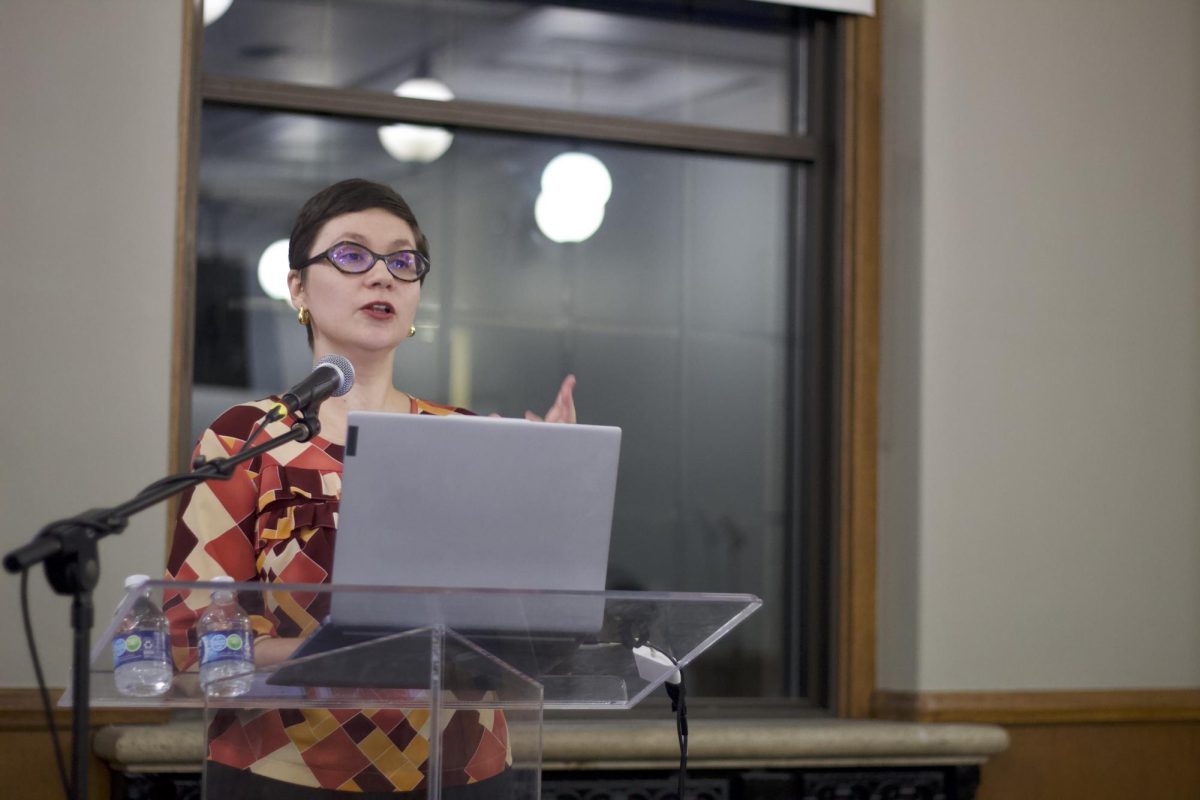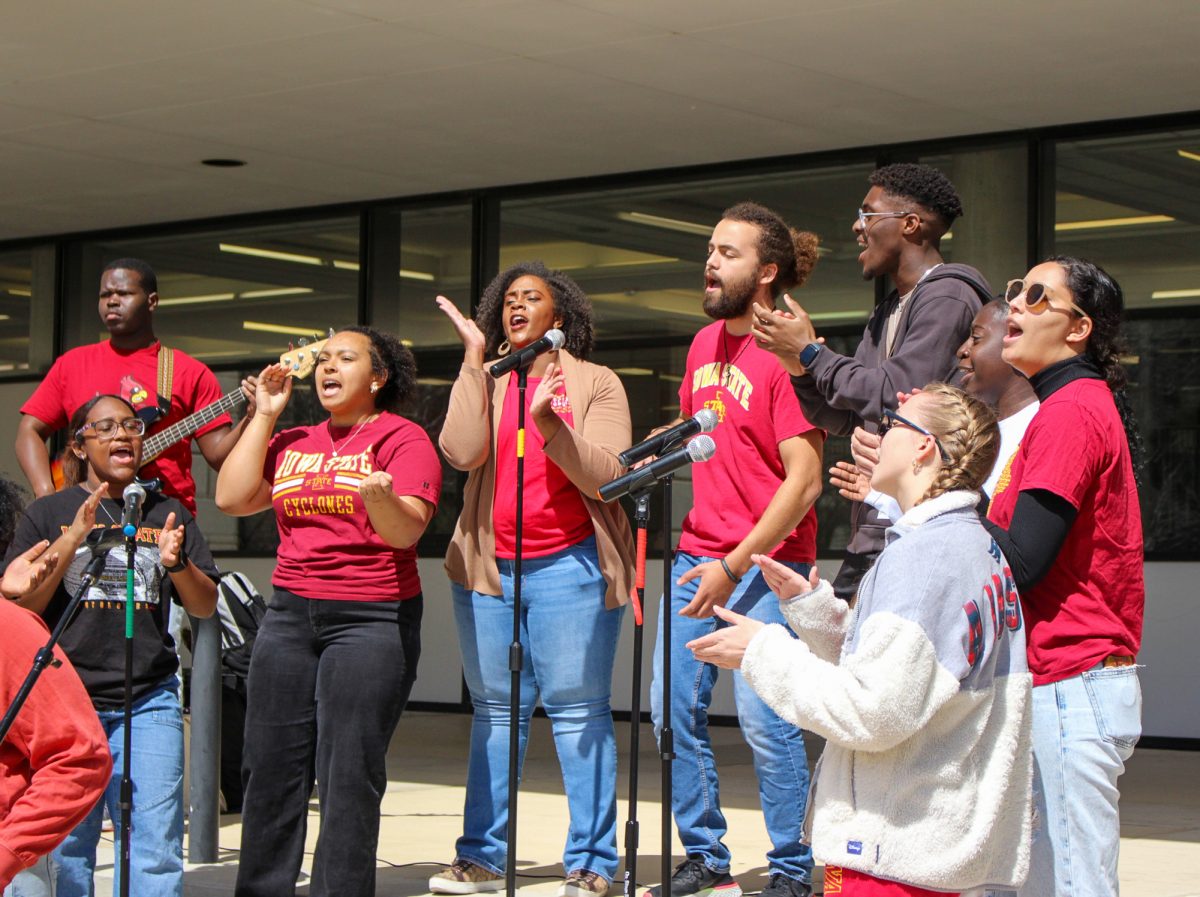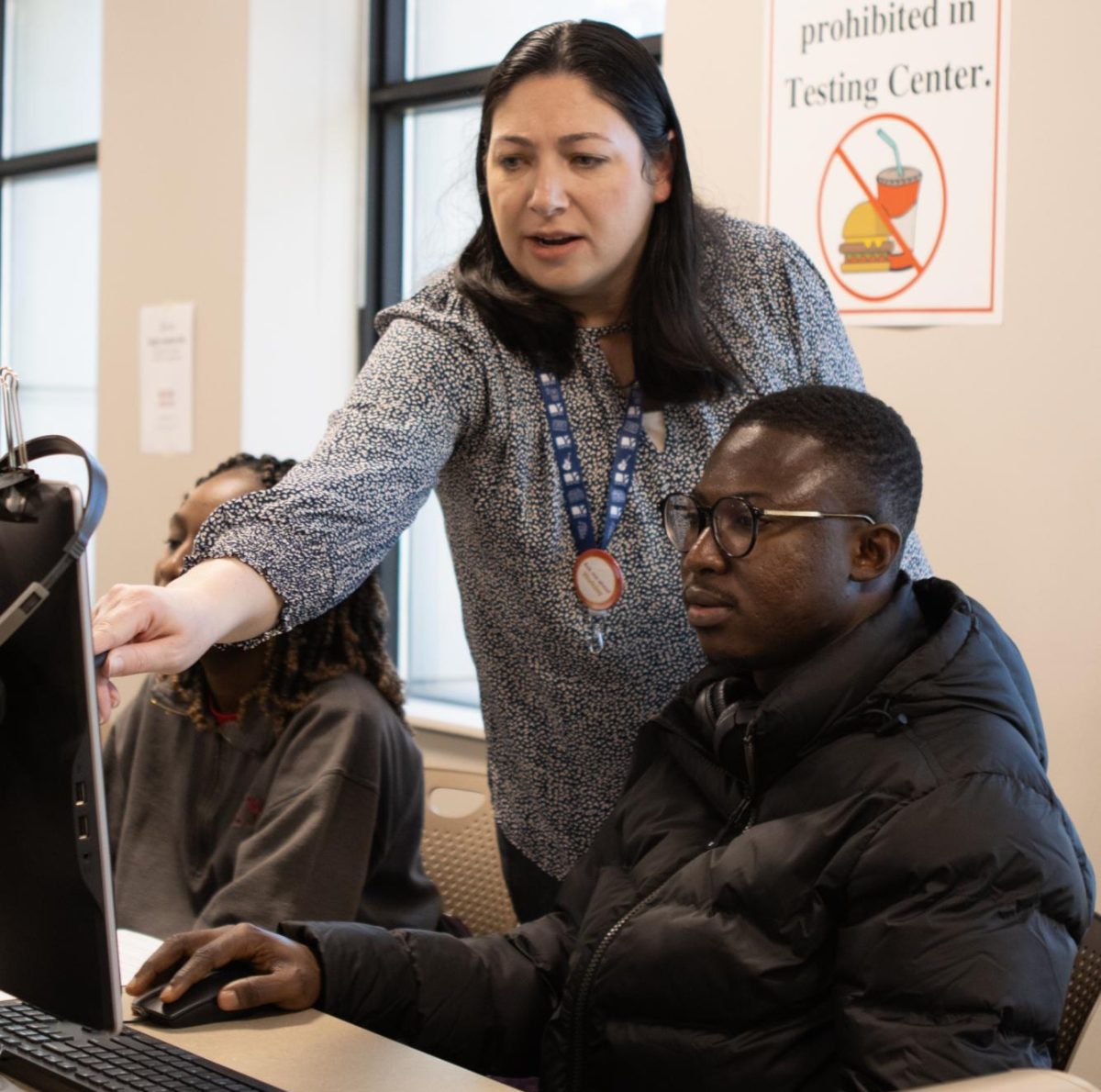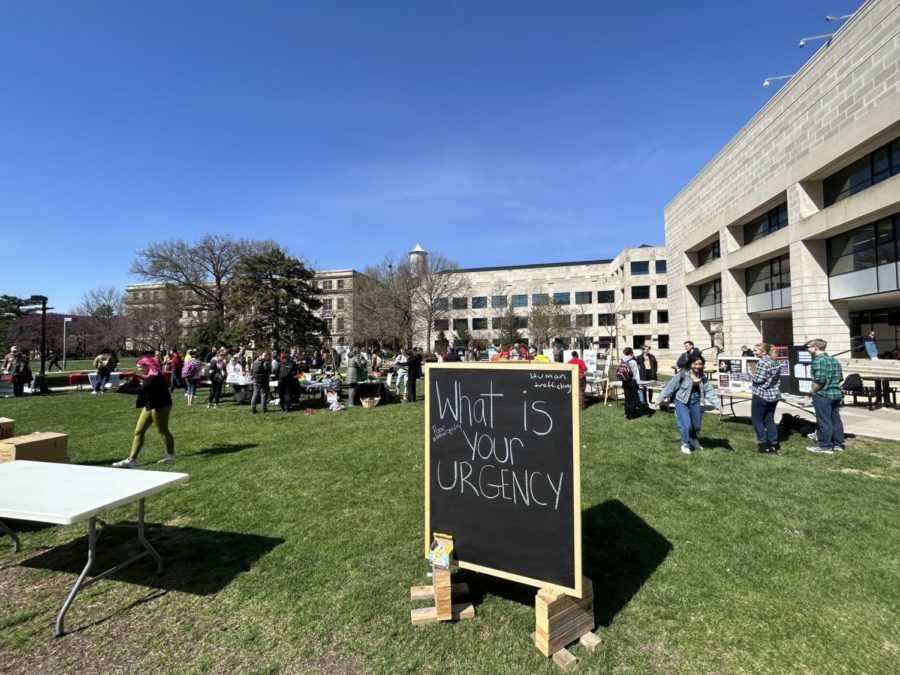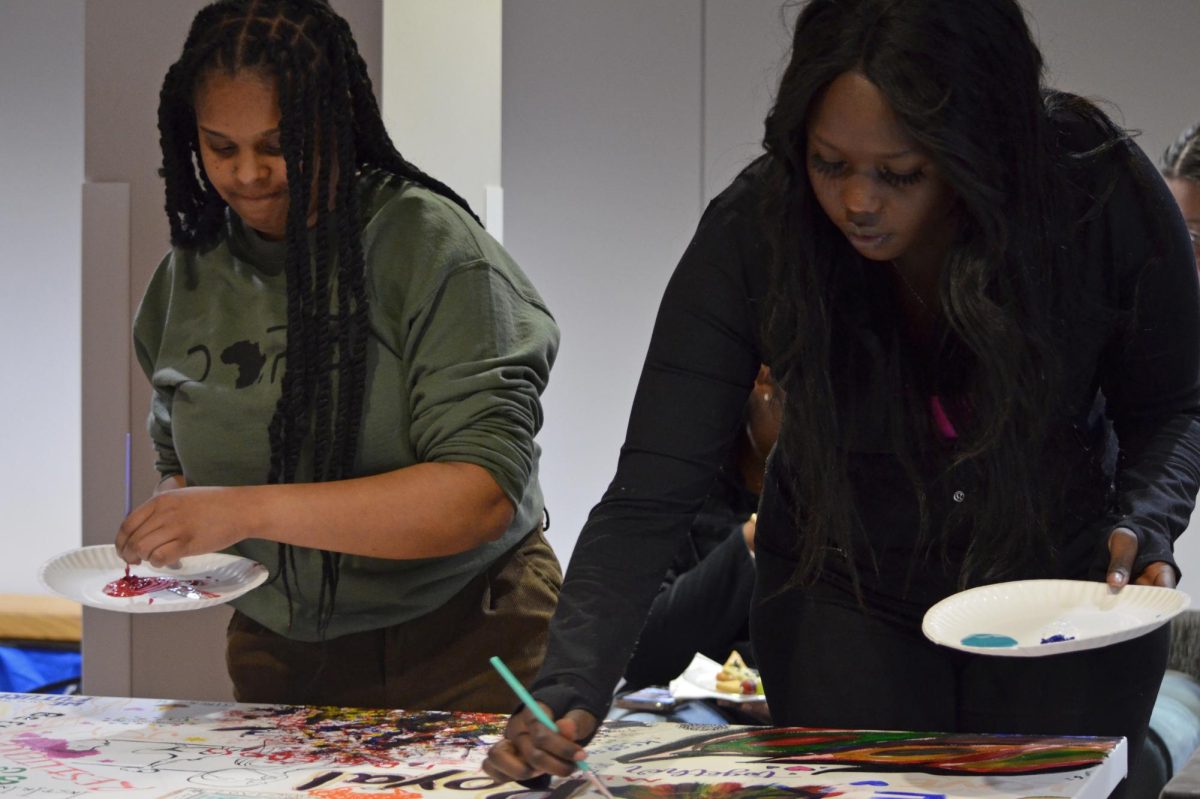Ana Lívia Agostinho, a professor of linguistics at the Federal University of Santa Catarina in Brazil, spoke at the Memorial Union Wednesday on the re-emergence of Afro-Creole languages in the Portuguese islands of São Tomé and Príncipe.
The lecture featured a history of the Creole and Pidgin languages, which originated from the Atlantic Slave Trade, the revitalization efforts taking place to keep the language from being lost and the work Agostinho has done to educate people about these languages.
Agostinho also spoke about the history of Creole and the languages it stems from.
The three native Creole languages that are spoken in São Tomé and Príncipe are Santome/Forro, Angular and Lung’Ie.
Angostinho spoke about how the Atlantic slave trade, specifically the slave trade conducted by Portuguese colonizers, brought a wide range of people, who spoke different African languages, together; this, along with the need for communication between slaves, created a new language, known as Creole.
Also mentioned in the lecture was the replacement of Creole with São Tomé and Príncipe Portuguese, which is taking place in these islands. Angostinho highlighted that fewer than 100 people can speak Lung’Ie.
While conducting her research, Agostinho said she completed 11 fieldwork trips to São Tomé and Príncipe in order to study the languages of native speakers. She studied stories, recipes, songs, conversations, interviews and more. Agostinho also conducted three workshops with residents of the islands.
Through her workshops and fieldwork, Agostinho received feedback from teachers, students and the parents of students learning these languages.
Some feedback mentioned included:
“It must be taught and very well because it is our mother tongue and we natives must keep using it.”
“Lung’Ie is the language of our land … because it’s the language of my land.”
“If other countries teach their native tongue, we must also know ours.”
“It’s important to learn because ‘it’s the language of our ancestors, and we should always value it and pass it on to the new generation.’”
Agostinho also highlighted some negative feedback, including :“It should not be obligatory because lung’Ie is not a curricular subject, but rather a social one, and therefore it may disturb the students’ minds with a language they can learn socially.’”
She said the only way for students to learn Lung’Ie would be in a classroom setting, due to the lack of native speakers that exist in the region.
“The children cannot learn the language socially because it is not spoken,” Agostinho said.
Agostinho has also published a Lung’Ie coursebook and is currently working on a Lung’Ie to Portuguese dictionary. At the moment, the dictionary contains 8,861 entries, and Agostinho said she plans to publish and distribute it once completed.
When asked about her interest in studying Creole languages in São Tomé and Príncipe, Agostinho said she had not originally planned to take her research as far as she had.
“As linguists, we have to be able to give something back,” Agostinho said. “You can see how this impacts the community.”

